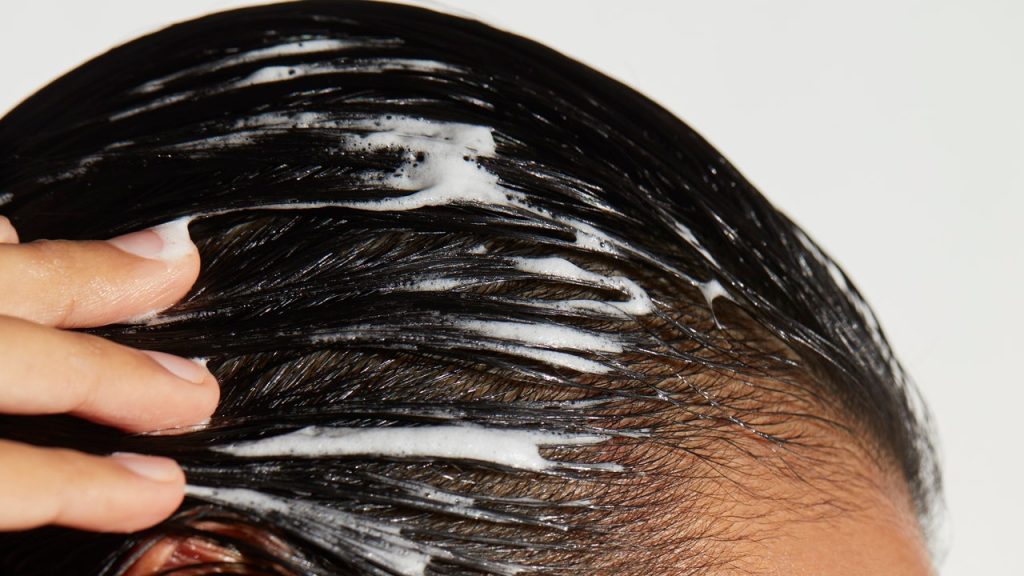Oily hair can be caused by a variety of factors, including going too long between washes, using heavy hair-care products, high humidity levels, sweating, and certain scalp conditions like sebaceous dermatitis. To combat greasy hair, it is recommended to use shampoos that are specifically formulated to reduce excess oil buildup. Clarifying shampoos, also known as purifying or detoxifying shampoos, can help break up oil and prevent buildup. Look for shampoos that create a lot of suds, as these can help remove oil effectively without being too harsh on the hair and scalp. Ingredients like salicylic acid, ketoconazole, zinc pyrithione, glycolic acid, muds, clays, charcoal, rosemary, and sage can also help control oil production and remove buildup.
When choosing a shampoo for oily hair, look for formulas that contain ingredients that can help control oil and absorb sebum. Surfactants like sodium lauryl sulfate may be too harsh on the hair and scalp, but alternatives like cocamidopropyl betaine, derived from coconuts, can be gentler. Salicylic acid, ketoconazole, and zinc pyrithione are recommended by experts for controlling oil production and flakes. Ingredients like glycolic acid, muds, clays, charcoal, rosemary, and sage can also help remove buildup and absorb sebum. Look for shampoos that are formulated to create a lot of suds, as these can help break up oil effectively without stripping the hair.
If you have oily hair, it is generally recommended to shampoo daily or every other day to get rid of excess oil buildup. Thinner, finer hair may need to be washed daily, while thicker hair can go longer between washes. Styling products, especially volumizing products, can leave behind greasy residue, requiring more frequent washing. While it may be tempting to rely on dry shampoo to extend time between washes, it is important to remember that dry shampoo can add buildup to the hair and ultimately make it look greasier. Regular cleansing can help control oil production on the scalp and prevent the hair from becoming too oily over time.
Some experts recommend shampooing daily or every other day to combat excess oil, while others suggest shampooing as needed based on individual hair type and concerns. Thinner, finer hair may need to be washed more frequently, while thicker hair can go longer between washes. It is important to cleanse the scalp regularly to prevent excess oil production and buildup, as product residue can inhibit healthy hair growth. Additionally, regular washing can help control oil production and prevent the hair from becoming greasy over time. Consistent cleansing with a shampoo formulated for oily hair can help maintain a healthy scalp and hair.













